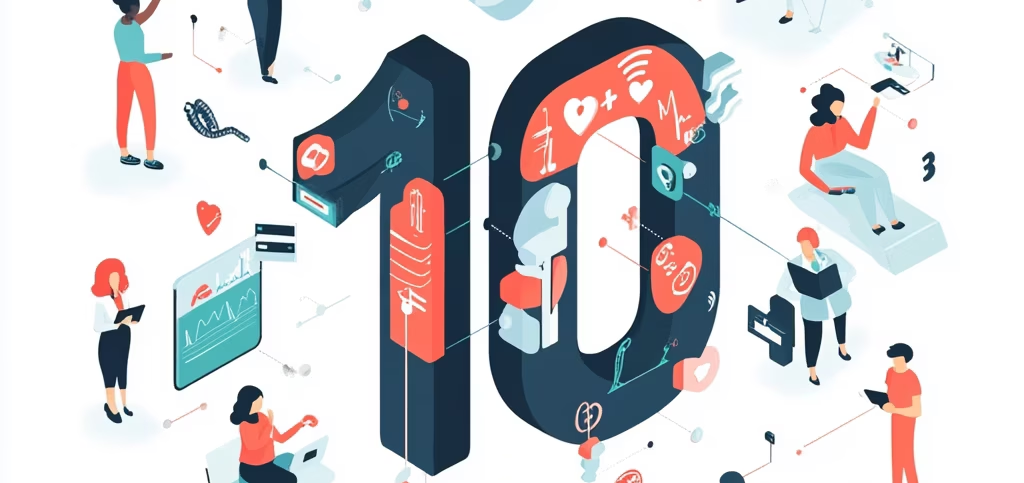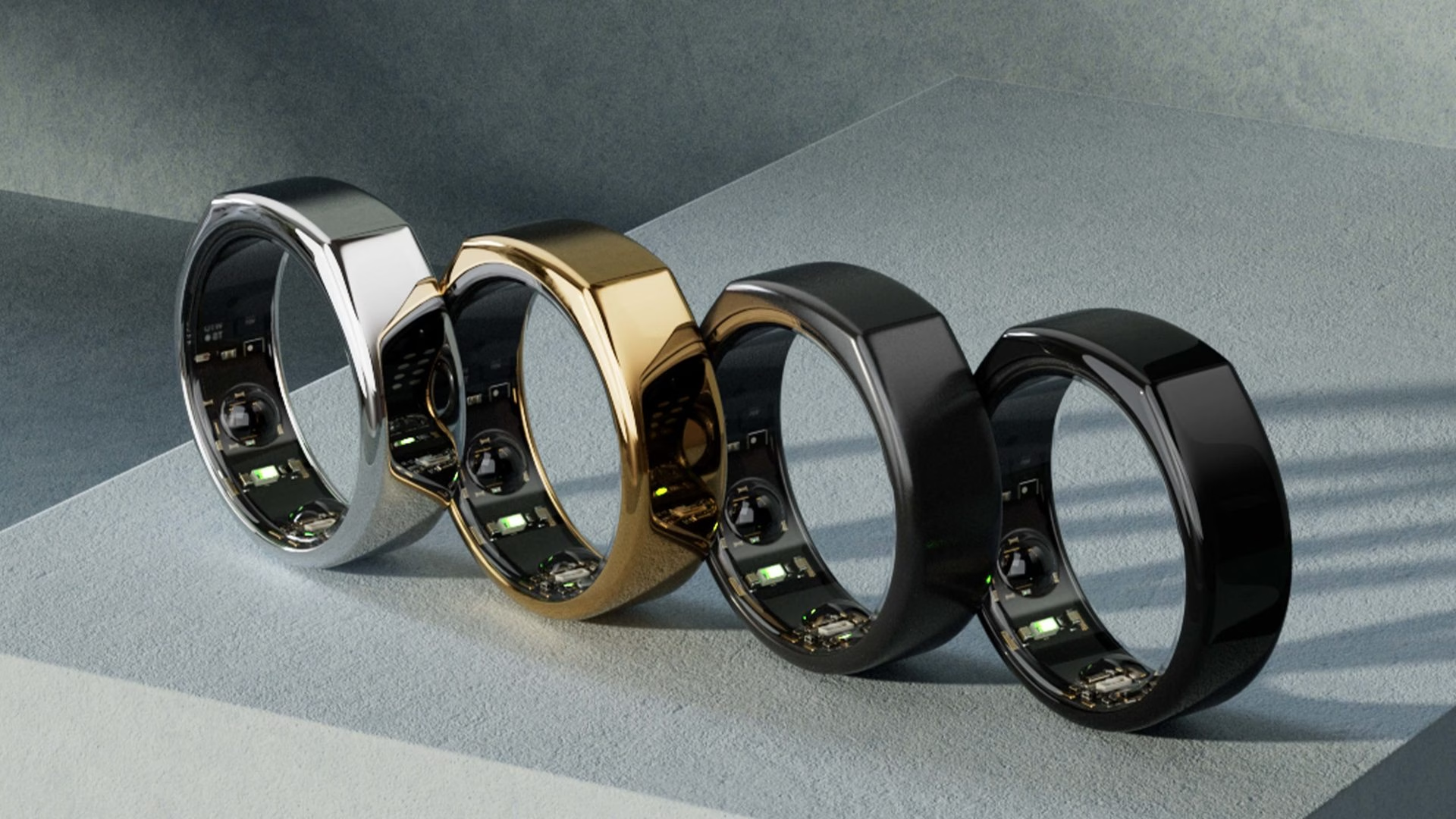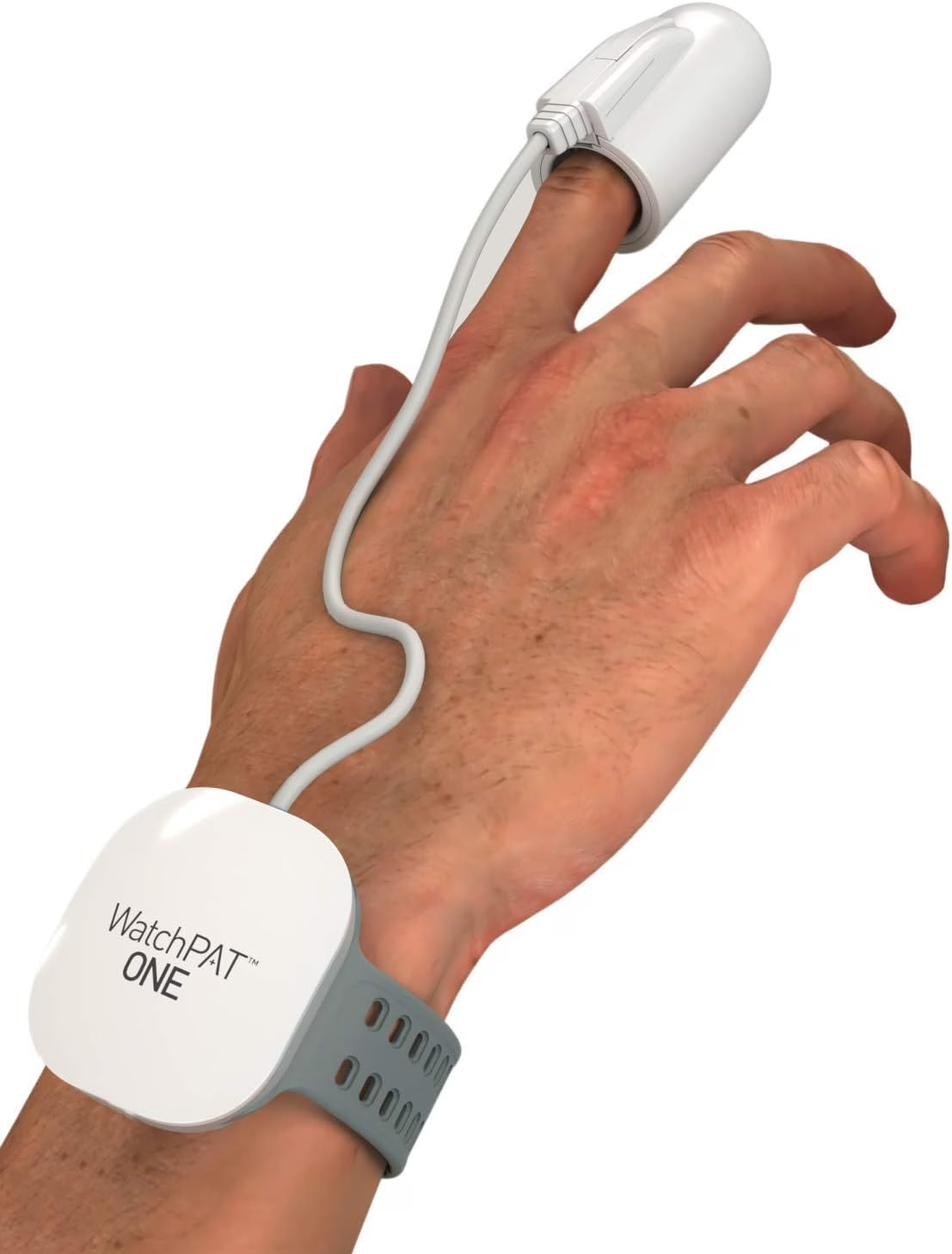The Future of Health Tech in 2025
The landscape of healthcare technology in 2025 is evolving at an unprecedented pace, driven by the fusion of artificial intelligence, digital therapeutics, and patient-centered innovations.
The convergence of AI-powered diagnostics, wearable health sensors, and real-time data analytics is redefining the way individuals interact with their well-being, shifting the paradigm from reactive treatment to proactive, personalized care.
Introduction
The landscape of healthcare technology in 2025 is evolving at an unprecedented pace, driven by the fusion of artificial intelligence, digital therapeutics, and patient-centered innovations. The convergence of AI-powered diagnostics, wearable health sensors, and real-time data analytics is redefining the way individuals interact with their well-being, shifting the paradigm from reactive treatment to proactive, personalized care.
Nanomedicine is enabling targeted drug delivery, virtual reality is revolutionizing rehabilitation, and genomics is unlocking the potential of precision medicine.
All of these areas are exciting and promising, shaping a future where healthcare is not only more advanced but also more accessible, personalized, and proactive.
As these technologies continue to develop, they may lead to a healthcare system that prioritizes prevention, enhances treatment precision, and empowers individuals to take greater control over their health and well-being.
At Godly Labs, we are at the forefront of these advancements, leveraging our expertise to understand and shape the future of healthcare. ClaraWell, our pioneering AI health assistant, exemplifies this shift by empowering users with actionable insights, seamless health data integration, and personalized recommendations. By bridging the gap between patients and their allied health professionals, ClaraWell™ ensures that individuals have real-time support and long term care in managing their wellness journeys.
As all these innovations continue to evolve, they are paving the way for a more connected and proactive approach to healthcare—one where technology enhances both patient autonomy and clinical decision-making. The future of medicine is being shaped by breakthroughs that improve accessibility, precision, and overall well-being.
Let’s dive into the 10 technologies shaping health and wellness in 2025 and explore how they are redefining the way we experience care.
Artificial intelligence is revolutionizing medical diagnostics by significantly enhancing speed and accuracy. AI models are detecting diseases earlier and predicting health risks with greater precision than ever before. Platforms like Qure.ai and Tempus utilize deep learning to analyze radiology scans, genomic data, and patient history, delivering real-time data-driven diagnoses. These advancements are improving early detection in fields such as oncology, cardiology, and neurology, helping healthcare professionals intervene sooner.
As an innovative AI designed to be a true health assistant, ClaraWell™ is not just a tool for diagnostics but a companion throughout daily health journeys. From daily routines to scheduled check-ins, ClaraWell™ is there—analyzing trends, offering insights, and ensuring individuals stay proactive in managing their well-being. Whether it’s tracking metrics, reminding users about medications, or interpreting subtle changes, ClaraWell™ continuously supports people by integrating with their personal health data in real time and beyond.
More than just an individual tool, ClaraWell™ bridges the gap between patients and their healthcare providers, facilitating secure, real-time sharing of critical insights. This ensures that doctors, specialists, and care teams have continuous visibility into a patient’s evolving health status, allowing for timely interventions that improve both immediate and long-term outcomes. Want to explore how ClaraWell™ is transforming personalized healthcare? Visit her website to learn more about her and how she can support your health journey.
AI-powered diagnostics and predictive, preventative medicine are still in their early stages, but we believe this is only the beginning. The acceleration of AI-driven healthcare solutions, combined with the integration and expertise of specialists and healthcare professionals, will shape a more responsive, intelligent, and patient-centered future. ClaraWell™ is proud to be at the forefront of this evolution, empowering individuals with the tools they need to take control of their health like never before.
Wearable technology has evolved beyond fitness tracking to become a central player in disease management and early detection. Devices like the Apple Watch Ultra, Oura Ring, and WHOOP 5.0 provide continuous metrics, from heart rate variability (HRV) to oxygen saturation and stress levels.
New advancements are allowing wearables to detect early signs of diseases like Parkinson’s and even monitor hydration levels.
Innovations in biometric clothing and smart textiles are also on the rise. Companies are embedding flexible sensors into everyday clothing, providing continuous monitoring of body temperature, muscle activity, and cardiovascular health without the need for traditional devices.
3. Remote Patient Monitoring (RPM) for Chronic Disease Management
The rise of Remote Patient Monitoring (RPM) is shifting healthcare from reactive to proactive, enabling patients to manage chronic conditions from home. Devices like Dexcom G7 for diabetes and Omron’s remote blood pressure monitors allow healthcare providers to track patients’ vitals in real time, reducing hospital visits and improving long-term outcomes. See more about Dexcom.
AI-driven predictive analytics is making RPM even more powerful, detecting subtle changes in a patient’s condition before symptoms appear. This allows for early interventions, helping manage heart failure, diabetes, and post-operative recovery. Furthermore, the future integration of RPM with AI-powered personal health assistants like ClaraWell™ ensures that users receive personalized alerts, medication reminders, and recommendations, transforming passive data collection into actionable, life-enhancing insights.
4. Personalized Nutrition and AI-Powered Meal Planning
As RPM collects real-time health metrics, the next logical step is optimizing daily habits, and that begins with nutrition. Gone are the days of one-size-fits-all dieting. AI-driven platforms like Nutrigenomix and Zoe leverage genetic, microbiome, and metabolic data to craft highly personalized meal plans. AI-powered nutrition tools now integrate with real-time glucose monitors, offering dynamic adjustments to food choices for improved metabolic health.
Additionally, food-scanning apps are using AI to instantly analyze the nutritional composition of meals, helping individuals make informed decisions based on their personal health data. The integration of AI-driven dietary recommendations into RPM and patient monitoring systems provides a seamless link between health tracking and nutrition management.
5. Digital Therapeutics (DTx) and AI-Driven Behavioral Health CBT
With a well-structured nutrition plan in place, overall wellness extends beyond physical health to include mental and behavioral well-being. CBT and CBT-I (Cognitive Behavioural Therapy – Insomnia) now woven into Digital therapeutics (DTx) and are revolutionizing mental health by offering software-based interventions for conditions like anxiety, depression, insomnia and chronic pain.
Platforms such as Woebot and Sleepio deliver structured, clinical therapies through AI-powered chatbots and mobile applications. These technologies are validated and certified, I am proud to witness their growth in real time.
6. Nanomedicine: Targeted Drug Delivery at the Cellular Level

Genomic research is unlocking personalized treatments based on individual DNA insights. Companies such as 23andMe and Invitae are enabling users to understand their genetic predispositions, leading to highly tailored interventions.
Artificial intelligence is now analyzing genetic data to create individualized treatment plans, optimizing medication effectiveness for conditions like cancer, cardiovascular disease, and rare genetic disorders.
The integration of precision medicine into digital health platforms allows for real-time adjustments in lifestyle and treatment plans, providing a more personalized approach to preventive care.
Sleep is the foundation of physical and mental health, and advancements in sleep technologies are helping individuals optimize rest like never before. Devices like Eight Sleep’s smart mattresses and Itamar-Zoll’s WatchPAT sleep apnea diagnostic technology provide high tech solutions and deep insights into sleep quality, disturbances, and respiratory health. Itamar-Zoll has recently introduced atrial fibrillation detection into their apnea testing technology, combining cardiac monitoring with sleep diagnostics. This advancement enables earlier detection of heart conditions, improving preventive care and providing clinicians with a more comprehensive view of patient health.
Recent developments also include non-invasive brain stimulation for sleep enhancement, a promising field for individuals struggling with insomnia or disrupted circadian rhythms.
While these advancements are already reshaping how we approach sleep health, we believe technology is just getting started.
The future holds the potential for even deeper personalization, where sleep solutions adapt in real time to each individual’s unique patterns, seamlessly integrating with daily routines to promote natural, restorative sleep. As research progresses, innovations in neurostimulation, wearable sleep monitors, and behavioral therapies will continue to redefine how we understand and optimize sleep, moving us toward a world where rest is not just monitored but truly enhanced at a daily-individual level.
8. Mental Health Support Apps and AI-Powered Therapy
The mental health revolution continues with AI-driven therapy platforms such as Wysa and BetterHelp, making professional support more accessible and affordable. These applications utilize conversational AI and cognitive behavioral therapy (CBT) techniques to deliver guided self-help and connect users with licensed therapists.
Moreover, digital companions powered by generative AI are becoming a source of comfort, helping people manage daily stress and build emotional resilience. By working alongside wearable technology, these tools can gently detect signs of anxiety, depression, and emotional distress, allowing for support before small struggles become overwhelming.
As these innovations grow, they offer the promise of a more thoughtful and connected approach to well-being. One where technology helps people feel heard, supported, and understood. We hope to play a meaningful role in shaping this future, making mental health support more accessible, intuitive, and deeply personal.
9. Genomics, Precision Medicine, and Preventive Health
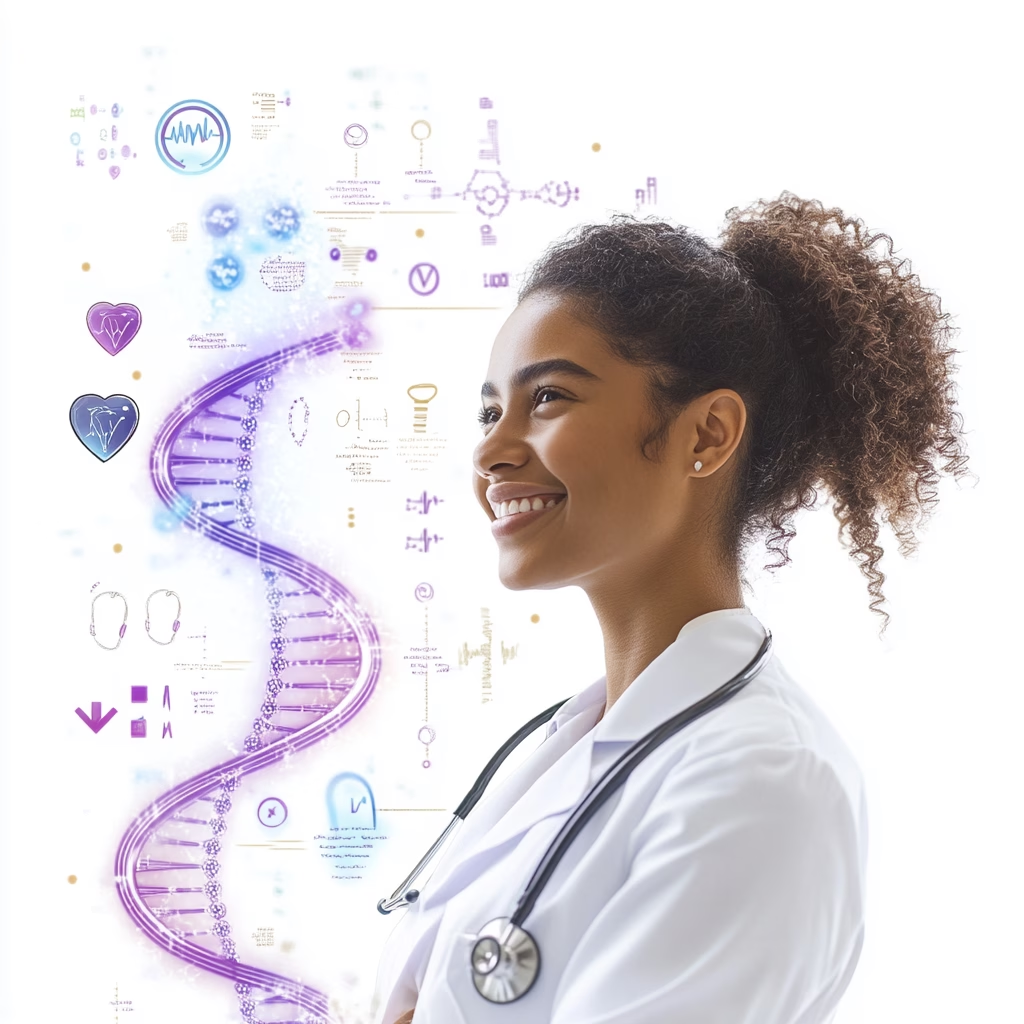
Genomic research is unlocking personalized treatments based on individual DNA insights. Companies such as 23andMe and Invitae are enabling users to understand their genetic predispositions, leading to highly tailored interventions.
Artificial intelligence is now analyzing genetic data to create individualized treatment plans, optimizing medication effectiveness for conditions like cancer, cardiovascular disease, and rare genetic disorders. The integration of precision medicine into digital health platforms allows for real-time adjustments in lifestyle and treatment plans, providing a more personalized approach to preventive care.
10. Virtual Reality (VR) for Pain Management and Rehabilitation
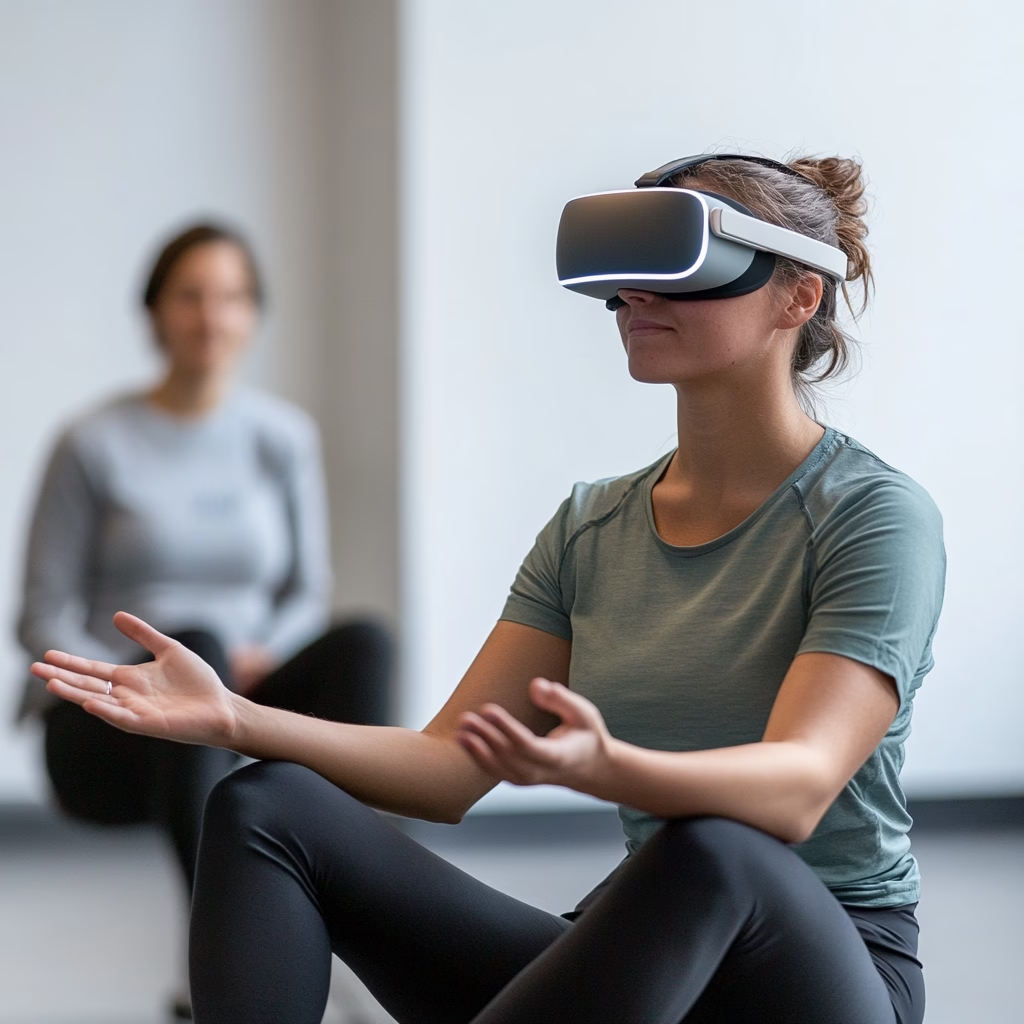
Virtual reality is emerging as a powerful tool for rehabilitation and pain management. Platforms like XRHealth and AppliedVR leverage immersive technology to aid patients recovering from injuries, managing chronic pain, and even coping with anxiety and PTSD.
New developments include AI-driven VR environments that dynamically adapt to patient responses, enhancing neuroplasticity for those undergoing stroke rehabilitation and motor skill recovery. The future of VR in healthcare extends to cognitive training, physical therapy, and pain relief, offering an engaging, interactive approach to long-term wellness.
This area is of significant interest to me, not just from a technological standpoint but from personal experience. After my car accident, I experienced firsthand the challenges of long-term recovery; the physical limitations, the frustration of slow progress, and the mental toll of staying motivated through setbacks. Recovery wasn’t just about regaining mobility; it was also about rebuilding confidence, managing pain, and overcoming the uncertainty that comes with injury. The process required both physical rehabilitation and mental resilience, reinforcing just how interconnected the mind and body are in healing.
VR has the potential to transform this process into something more engaging and adaptive. By creating immersive environments that stimulate movement and healing, virtual reality could make rehabilitation more effective and motivating. As this technology advances, I hope to see it become more widely accessible, offering a new path to recovery for those facing similar challenges.
In 10 Years from Now
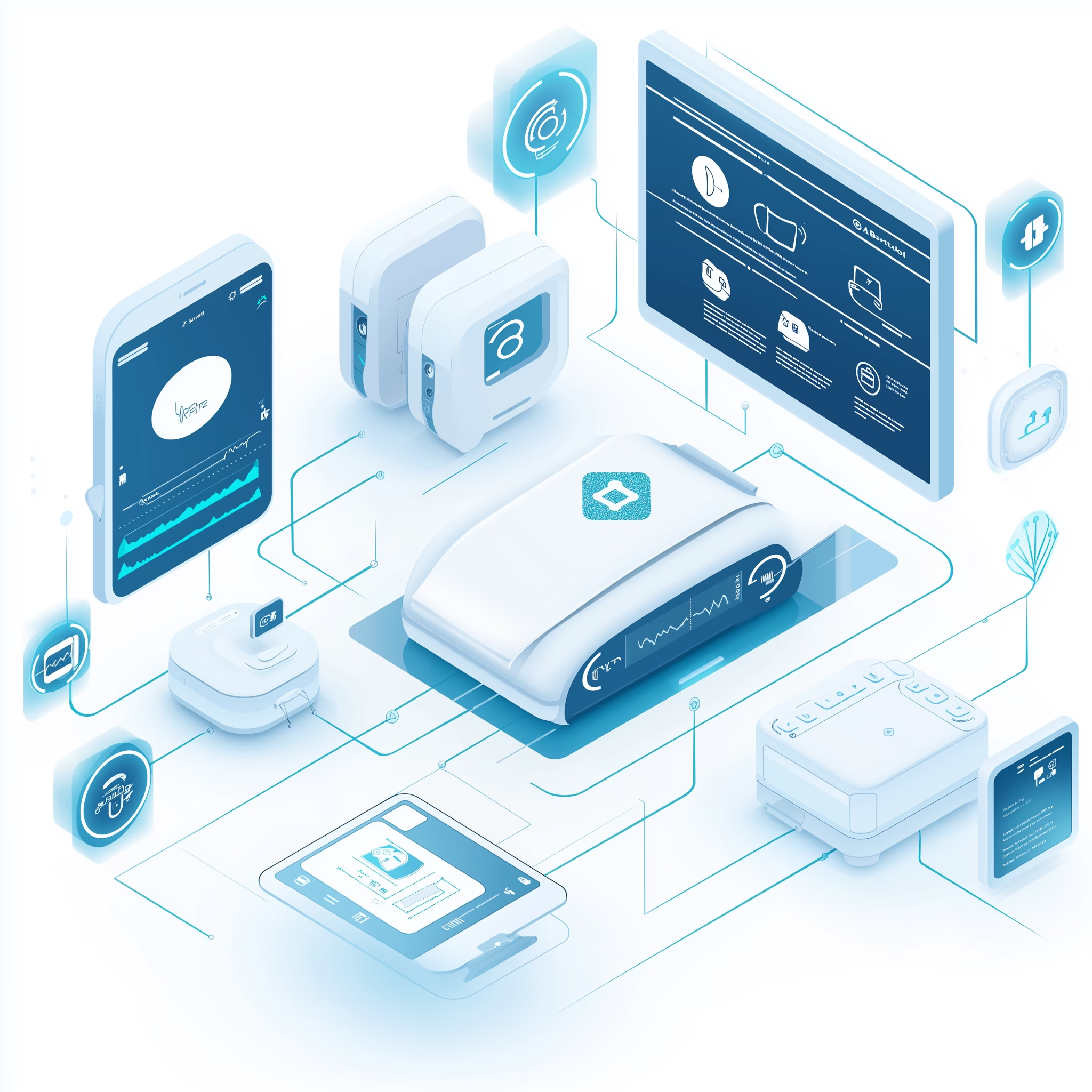
Imagine a future not too far away, in 2035, when healthcare has evolved into a truly personalized, proactive experience. Medical artificial intelligence and machine learning is no longer just a siloed tools but an integrated part of daily wellness, empowering individuals with real-time insights and preventative care that seamlessly fits into their lives.
Wearable sensors, embedded into clothing and accessories, continuously monitor metrics, ensuring that even the smallest changes are detected and addressed before they become serious concerns.
I believe that while technology will play a transformative role, the expertise of specialists and healthcare professionals will remain the foundation of care. AI-powered platforms like ClaraWell™ will serve as facilitators, enhancing collaboration between patients and medical teams rather than replacing the intuition and touch. This balance will ensure that no individual is left navigating their health alone.
As we move toward this future, Godly Labs Inc. and ClaraWell™ will continue to lead the charge, ensuring that technology remains a tool for empowerment and connection. The goal is not just to extend lifespan but to enhance the quality of life, where every individual has access to smarter, more personalized, and compassionate care. This future of healthcare is not about machines taking over but about them working in harmony with the experts who dedicate their lives to keeping us well.
The future of proactive medicine is evolving into an interconnected digital ecosystem, where remote patient monitoring, wearable sensors, and AI-driven advancements are reshaping how individuals engage with their day to day well-being. These technologies are driving a shift from reactive treatment to proactive, personalized care, ensuring a more holistic approach to health and wellness.
These 10 exciting technologies revolutionizing health and wellness in 2025 are not only enhancing accessibility and precision but also redefining the very foundation of healthcare. We are moving toward a future where technology empowers individuals, supports clinicians, and ultimately improves quality of life and longevity for all.
Written by Eric Blum
Last revised: April 3, 2025

